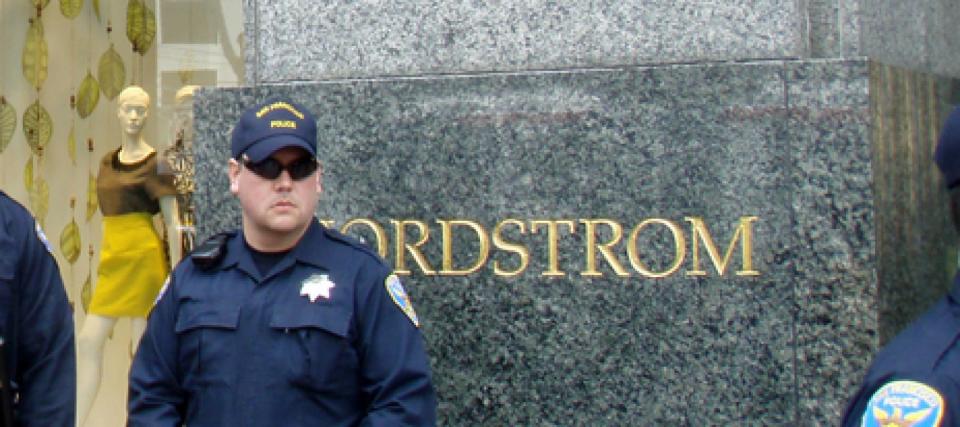'Rampant criminal activity': Nordstrom is shutting down both of its San Francisco stores — following big retailers like Whole Foods, Office Depot who've also fled the city. Here's why

Nordstrom is closing both of its San Francisco stores as crime and dwindling foot traffic suck the profits from major retailers in the city.
The luxury department store chain said its store in Westfield Mall will shutter at the end of August, while the Nordstrom Rack across the street will close on July 1.
Don't miss
Rich young Americans have lost confidence in the stock market — and are betting on these 3 assets instead. Get in now for strong long-term tailwinds
You could be the landlord of Walmart, Whole Foods and CVS (and collect fat grocery store-anchored income on a quarterly basis)
UBS says 61% of millionaire collectors allocate up to 30% of their overall portfolio to this exclusive asset class
“Decisions like this are never easy, and this one has been especially difficult,” chief stores officer Jamie Nordstrom wrote in an email to staff, which was shared with The Washington Post.
“But as many of you know, the dynamics of the downtown San Francisco market have changed dramatically over the past several years, impacting customer foot traffic to our stores and our ability to operate successfully.'”
The “dynamics” were elaborated on by Westfield Mall, which released a statement to the newspaper highlighting the “deteriorating” crime situation in downtown San Francisco, which is creating “unsafe conditions for customers, retailers, and employees.” The mall also urged city leaders to address the lack of enforcement “against rampant criminal activity.”
A retail exodus
Nordstrom joins a flock of retailers fleeing the coastal California city over similar issues, with many — including Whole Foods, H&M, Marshall's, Gap, Banana Republic, Anthropologie and Office Depot — quitting the Union Square neighborhood, which was once a go-to shopping destination.
Shops in the area have struggled to regain the same levels of footfall that they enjoyed pre-pandemic — partly due to rising costs and the sustained popularity of remote work.
“Retail within urban areas, particularly commercial central business districts, are very dependent upon office traffic,” Tom McGee, president and chief executive of the ICSC, formerly known as the International Council of Shopping Centers, told the Washington Post. “If you can’t drive the foot traffic … that’s going to be the biggest driver of their decision to close a store.”
But retailers are also leaving San Francisco because of its crime problem, notably property crimes, car break-ins and drug crimes, among other intractable issues.
Read more: Want to invest your spare change but don't know where to start? There's an app for that
When Whole Foods announced in mid-April that it was closing its store at Trinity Place in the city's Tenderloin District, a spokesperson for the organic food giant expressed concerns about “the safety of our team members” due to the drug use and crime near the store.
These issues, while significant in San Francisco, are not isolated to the Bay Area.
According to a [study](https://cdn.nrf.com/sites/default/files/2023-04/NRF-K2OrganizedRetailCrimeReportFinal.pdf] from the National Retail Federation, organized retail crime and theft are growing in both scope and complexity across the U.S.
“We’re seeing the highest level of organized retail crime and theft ever,” Lakshman Lakshmanan, senior director in consultant Alvarez & Marsal’s consumer and retail group, told The Washington Post.
“We have CFOs and even global CEOs saying that theft has become such a huge issue that we have significant draw or weigh-down on the profitability.”
A concerning trend in commercial real estate
Many cities have seen retail store closures in recent months. In April, Walmart announced it was closing four “underperforming” stores in Chicago after allegedly losing tens of millions of dollars on them every year for the past 17 years. The big box store also closed stores in D.C. and Portland.
Industry experts think this could be the start of a concerning new trend — one that commercial real estate investors will want to keep a close eye on, since it will add another challenge to an already shaky and debt-ridden sector.
In particular, office real estate is under immense strain due to the rise in remote and hybrid work during and after the COVID-19 pandemic. Rising borrowing costs are also squeezing property owners and complicating real estate financing.
The only (relatively) safe bet in the sector, according to real estate investing expert Patrick Carroll, is residential real estate, which has managed to maintain its strong fundamentals through the economic turmoil of recent years.
But before you make the jump, make sure you consider risks like crime rates and vacancies in the area you’re looking to invest in.
What to read next
Earn extra cash for your weekend with these quick money hacks
'So much money out there': This millionaire YouTube star says earning $200K should be easy if you're 'smart about it' — here's 1 easy way to boost your income while you sleep
Here are 3 easy alternatives to grow your hard-earned cash without the shaky stock market
This article provides information only and should not be construed as advice. It is provided without warranty of any kind.

 Yahoo Finance
Yahoo Finance 